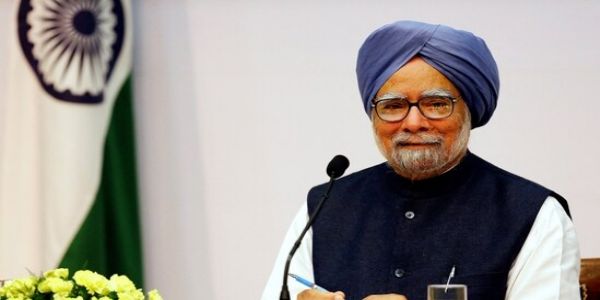
Thiruvananthapuram, 26 December (H.S.): Architect of the Indian Constitution Dr B R Ambedkar had warned Father of the Nation Mahatma Gandhi against appeasing the Muslims at the cost of Hindus. This happened during the 1931 meeting between the two held at Bombay where Gandhi was staying in the palatial Mani Bhavan.
Professor Narendra Jadhav, the official biographer of Dr Ambedkar has said in his work 'Ambedkar-Awakening India’s Social Conscience’, that this meeting changed the course of India’s freedom struggle.
The debate on the 75th anniversary of the Constitution in both Houses of Parliament ended in a slanging match between the ruling and opposition parties. More than the significance of the Constitution, the topic of debate turned into who insulted and humiliated Dr B R Ambedkar more.
Much before the Congress allegedly insulted Dr Ambedkar, there was an incident in which Mohandas Karamchand Gandhi, the Father of the Nation, had ticked him off for questioning the discrimination shown by the Congress towards the Harijans, writes Prof Jadhav.
‘Ambedkar-Awakening India’s Social Conscience’, begins with the confrontation Gandhi had with Dr Ambedkar at Mani Bhavan, Mumbai on 14th August 1931. Dr Ambedkar had gone to visit the Father of the Nation at the latter’s invitation but he was forced to wait for hours in the hall where Gandhi was having chit-chat with his devotees and some foreign journalists. Though Gandhi saw Ambedkar entering the hall, the former chose to ignore him. Gandhi continued his bantering with some foreign journalists.
After some time Gandhi turned towards Dr Ambedkar and asked him “Well doctor, what do you have to say in the matter?”. Dr Ambedkar had in his letters to Gandhi questioned the propriety of the Congress and Gandhi in following a policy of discrimination against Untouchables. “You have called me to hear your views. Please tell me what you have to say. Or you may please ask me some questions and I shall answer,” replied Dr Ambedkar.
Gandhi said: “I may tell you that I have been thinking over the problem of Untouchables ever since my school day when you were not even born. You may perhaps know what enormous amount of effort I had put in to incorporate this problem into the programme of the Congress and make it a plank of the Congress platform. The Congress has spent not less than Rs two million on the upliftment of the Untouchables. And it is really surprising that men like you should offer opposition to me and the Congress…”
Dr Ambedkar told Gandhi that the whole amount spent by the Congress was a waste. “With such a backing I could have effected an astounding change in the outlook and economic conditions of my people. But the Congress is not sincere about its professions. Had it been sincere it would have surely made the removal of Untouchability a condition, like the wearing of khaddar for becoming a member of the Congress,” said Dr Ambedkar.
Before concluding the meeting and coming out of Gandhi’s bungalow, Dr Ambedkar delivered a punch from which the Congress or the Communists are yet to recover. “Everybody knows that the Muslims and the Sikhs are socially, politically and economically more advanced than the Untouchables. The first session of the Round Table Conference has given political recognition to Muslims’ demands and has recommended political safeguards for them. The Congress has agreed to their demands. Though the Depressed Classes too were assured of safeguards nothing has come off from the promise,” said Dr Ambedkar to which Gandhi replied “I am against the political separation of the Untouchables from the Hindus. That would be absolutely suicidal.”
This made Dr Ambedkar come out of his encounter with Gandhi. Prof Narendra Jadhav says this was the meeting that shaped Modern India. Dr Ambedkar’s relations with Gandhi and Congress were not the same afterwards.
Political historians point out that Prof Jadhav has hit the nail on its head. Whoever confronted Gandhi with the follies in his policy was finished off politically and socially. The best example is Sir C Sankaran Nair, the president of AICC in 1897. It was for challenging Gandhi’s stand vis-à-vis the Khilafat movement that Sir Nair was eased out from the history of the Freedom Movement. He had described Gandhi as an anarchist in his book Gandhi and Anarchy.
Hindusthan Samachar / Manohar Yadavatti





